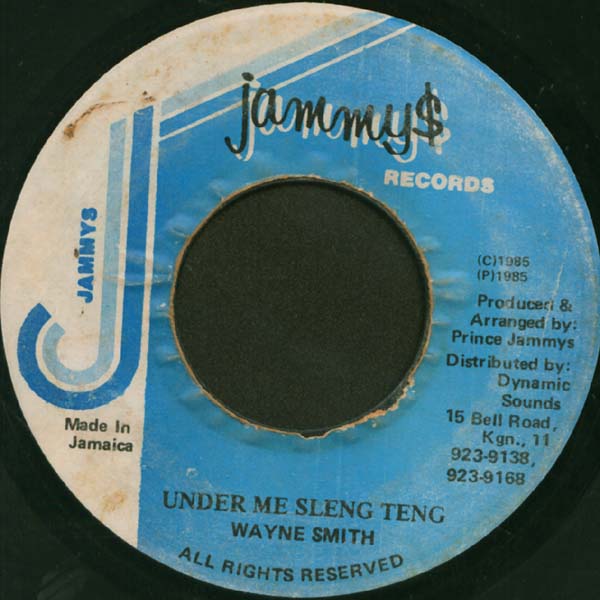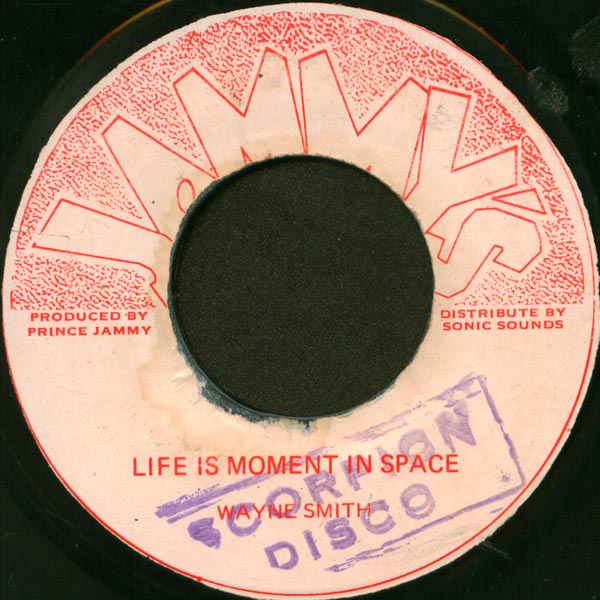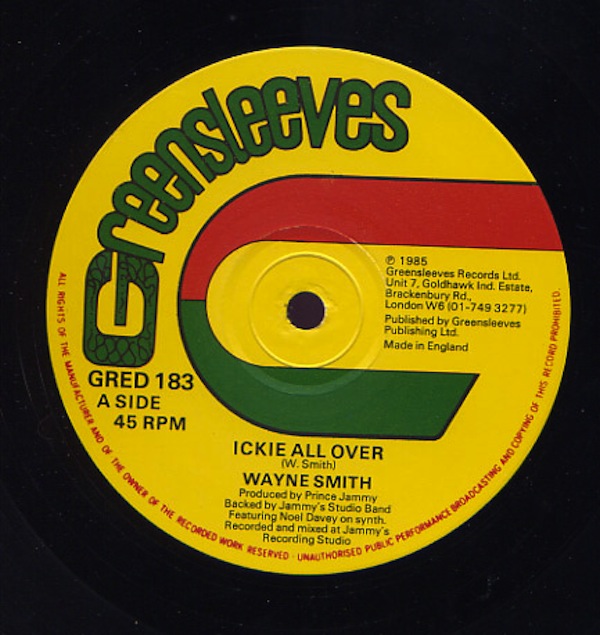Words by Desmond Alphonso, Photo by Beth Lesser—
Wayne Smith, vocalist of “Under Mi Sleng Teng,” the 1985 track which brought dancehall into the digital age, passed away suddenly in Kingston, Jamaica, at age 48. Composed by Smith and musician Noel Davey on a Casio MT-40 keyboard and produced by Prince Jammy, “Under Mi Sleng Teng” revolutionized music production in Jamaica, as the first dancehall track constructed using entirely digital technology.
Born in Waterhouse in 1965, Smith performed on various sound systems as a youth before recording his first single, the enigmatically titled “Life is a Moment in Space,” for Jammy’s in 1982. His debut LP, Youthman Skanking, followed that same year. After recording for other labels, he and Davey brought the basis for “Sleng Teng” to Jammy’s in 1984, after a pre-set riddim on the Casio MT-40 based on Eddie Cochran’s “Somethin’ Else” sparked Smith to compose the song’s lyrics.
A weed anthem borrowing cadence from Barrington Levy’s hit “Under Mi Sensi,” “Under Mi Sleng Teng” caused instant waves after it was unveiled by Jammy’s sound system at a sound clash against rival Black Scorpio in Kingston. The Sleng Teng riddim, as the instrumental version of the track is known, would be voiced, updated and reinterpreted by hundreds of artists over the last 29 years. Notable hits recorded on the riddim include “Pumpkin Belly” by Tenor Saw (pictured at far right in the above photo; Wayne Smith is second from left, in all black; Echo Minott stands between them), Johnny Osbourne’s “Buddy Bye” and Bounty Killer’s “Lodge.”
The riddim endures: last year a Major Lazer-produced version was voiced by Snoop Lion and Mr. Vegas, as “Fruit Juice,” on the former’s Reincarnated LP. “Sleng Teng” has been referenced in lyrics by artists as diverse as Robyn and 311.
Wayne Smith left Jamaica in 1989 for New York City, where he set up his own label, named for the track that defined his career, but ultimately returned in 2012, a year after embarking on his first tour of Europe. Smith had reported a stomach ailment this weekend before checking into Kingston Public Hospital, where he was pronounced dead yesterday, his son, Tidel Smith, told the Jamaica Observer.
Ultimately “Sleng Teng” (which was included on Rolling Stone‘s list of the “15 Greatest Stoner Songs” in 2011) had a greater impact on King Jammy’s, dancehall and the music industry overall than it did on Smith’s own career. As David Katz noted in his 2002 book Solid Foundation,
The success of “Sleng Teng” made Jammy’s tiny studio a completely self-sufficient reality; with keyboards, sequencer and drum machine he had enough to construct hit riddims, voicing and overdubbing as necessary. He no longer had to rely on the more established, larger and better-equipped facilities; everything could be done right at home, in his converted bedroom studio. This approach would revolutionize the way recordings were made in Jamaica, as other began to convert similar spaces; the concept of the bedroom studio was also taken up in places like Chicago and London, where aspriging producers and club deejays used similar set-ups to turn tape loops and sampled sequences into music.
Click through to groove to the eternal sounds of “Sleng Teng” and sample some of Wayne Smith’s other notable recordings after that, and check back with LargeUp soon for Sherman Escoffery’s exclusive 2012 interview with the late singer.







